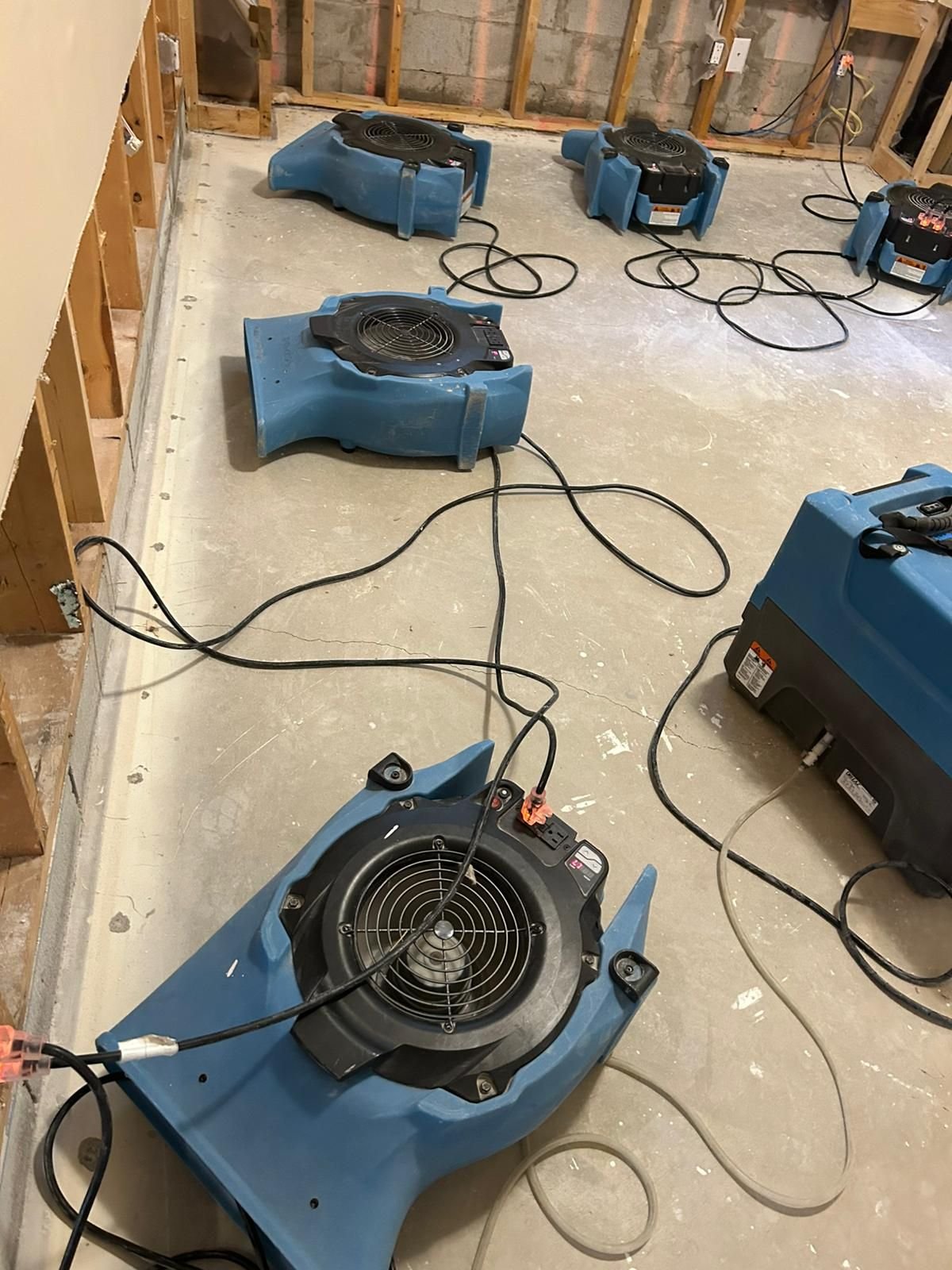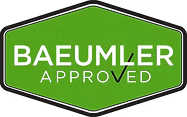Your Toronto condo needs professional help right away if water damage strikes. Floods can happen from many causes – burst pipes, sewage leaks, overflowing drains, or bad weather. Time matters most during these disasters. Water sitting in your condo leads to bigger problems that can get pricey fast.
Our team knows how stressful and urgent condo flooding can be. We bring exceptional experience of 20 years in water damage restoration. You’ll get our rapid response within 1 hour anywhere in Toronto and the GTA.
Water damage left alone creates more issues like mold, mildew, and musty smells that stick around your home. That’s why our experts use special tools. These tools help dry out building materials and air quickly and effectively.
This piece walks you through the main reasons behind Toronto condo water damage. You’ll learn what steps to take right after a flood, how restoration works, and what condo owners should know about condo insurance water damage. This information helps protect your Toronto condo investment. Having water damage now or wanting to prepare for future issues is useful.
Common Causes of Condo Water Damage in Toronto
Toronto condos face unique water damage risks. Water damage claims make up 40-50% of all property-related insurance claims in Toronto condos. You can protect your investment and handle emergencies better by knowing these common causes.
Burst pipes and plumbing failures
Plumbing issues remain the most common cause of water damage in Toronto condos. Buildings with aging systems often experience catastrophic failures, especially those built with problematic materials like Kitec plumbing. Many condo buildings now face a new wave of plumbing problems. The epoxy-lined pipes put in around 2010 are failing too soon.
Tall buildings struggle with high water pressure. A restoration expert explains it clearly.
High-pressure lines, such as four-inch and six-inch lines, can be extremely dangerous.
Even a small break in these lines can lead to millions of dollars in damage in just a few minutes. Winter freezing makes pipes expand and crack, especially in areas that lack proper insulation.
Weather-related flooding and sewer backups
Toronto’s climate creates major flooding risks. A 2023 rainstorm dumped a month’s worth of rain in hours.
This overwhelmed the sewer systems and caused over 700 basement flooding calls. The estimated damages exceeded CAD 1.39 billion. Heavy rainfall often overloads drainage systems, and sewer backups affect multiple units at once.
Severe weather hits condo buildings hard. Underground parking garages flood when sewage systems get overwhelmed. Blocked exterior drain lines stop proper drainage after storms. This lets water seep through air conditioning ducts or other openings.
Appliance leaks and HVAC issues
Household appliances cause much of the water damage in Toronto condos. Water heaters, washing machines, dishwashers, and refrigerators often leak because of old parts or poor maintenance. These problems hit harder in high-density living spaces where hundreds of appliances run close together.
HVAC systems create their own risks because of their complexity. Each air conditioner creates 20-50 gallons of condensation daily. This can cause extensive damage if drainage systems fail. Most HVAC water damage comes from clogged drain lines, frozen coils, and damaged drain pans.
Water damage from neighbouring units
Water damage doesn’t stay in one unit in condos. Leaking pipes from units above quickly affect those below, which creates tricky liability issues. Overloaded washing machines, overflowing bathtubs, or forgotten running water in one unit can damage several others.
Understanding your condo insurance coverage for water damage becomes crucial since responsibility depends on the water’s source and your building’s governing documents. Documentation matters – take detailed photos right away and tell your property manager as soon as you notice water intrusion.
What to Do Immediately After a Condo Flood
A flood in your Toronto condo needs quick action. The first few hours after water damage are vital. Any delays can substantially worsen the situation and increase restoration costs.
Turn off the electricity and water supply
Safety comes first when dealing with condo water damage. Find and shut off your unit’s water valve right away to stop the flooding source. Your building management can help with emergency assistance if you can’t access the main valve.
Electricity poses serious dangers in flooded areas. Stay away from standing water that might have submerged electrical outlets or appliances.
Turn off power at your breaker box if it’s safe. Call your local electrical utility for immediate help if you can’t do it safely. Never touch electrical components while standing in water – electrocution risk is severe.
Contact building management and water damage condo insurance
Let your property manager or building superintendent know immediately to find the water source and start fixing the problem. This step becomes vital if the water damage came from a neighboring unit or common area.
You should file your insurance claim quickly since many policies require you to report within 24 hours. Tell your insurer all the details about what happened. Include what you think caused it and your first look at the damage.
Document the damage with photos and videos
Take detailed photos and videos of all affected areas before cleanup starts. List all damaged items with their brand names, model numbers, purchase prices, and when you bought them. These records are the foundations of your insurance claim and liability discussions.
Call a professional condo water damage service
Professional restoration is vital because standing water damages structures quickly and leads to dangerous mold growth. Quality restoration companies work around the clock and usually offer free damage assessments. These specialists will:
- Conduct a thorough property inspection
- Deploy industrial water extraction equipment
- Properly dry and dehumidify affected areas
- Prevent mold development
- Provide documentation for insurance claims
Note that mold can start forming just 48 hours after water exposure. Professional help becomes essential to protect your property and health.
How Water Damage Restoration Works
Professional restoration services use a systematic approach to fix condo water damage in Toronto. The process needs several key steps that teams must complete within specific times to stop further damage.
Original inspection and moisture detection
A detailed assessment starts the restoration process to find the water source and its extent. Skilled technicians use special tools like infrared cameras, moisture meters, and hydrostatic tests to find hidden leaks and moisture. This inspection helps create a custom mitigation plan and provides important documentation that insurance companies need.
Water extraction and debris removal
Quick removal of standing water comes next. The team uses submersible pumps for large water volumes and wet/dry shop vacuums for smaller areas. Technicians remove soaked materials and leftover mud after water extraction. They properly dispose of all contaminated items that won’t dry, including carpeting, particleboard furniture, and damaged insulation.
Drying and dehumidification process
Quick drying stops mold growth that can start in just 48 hours. The process uses:
- High-velocity air movers to increase airflow and evaporation
- Industrial dehumidifiers to extract moisture from the air
- Temperature control methods to create optimal drying conditions
The team checks moisture levels daily and adjusts equipment placement to work better.
Mold prevention and disinfection
The team cleans all surfaces with specialized products to eliminate bacteria and contaminants after drying. They use disinfectant agents instead of bleach-based products. This cleaning step is important, even in areas not directly touched by the flood. Extra moisture in the condo can lead to mold risks.
Structural repairs and restoration
The final phase rebuilds damaged elements once everything dries properly. The work might include new drywall, floor repairs, and cabinet restoration. The restoration team meets all building codes while reducing disruption to neighbouring units.
Understanding Condo Insurance and Costs
Toronto residents face unique challenges with insurance coverage for condo water damage. Water damage makes up 40-50% of all property-related claims in Toronto condos.
Does condo insurance cover water damage?
Standard condo insurance covers sudden and accidental water damage from burst pipes, appliance leaks, or dishwasher malfunctions. Not every water incident qualifies for coverage. The policy won’t cover gradual seepage, long-term leaks, or damage from poor maintenance.
You might want to add extended water damage coverage to your policy. This extra protection safeguards against sewer backups, overland flooding, and groundwater intrusion.
What if the damage came from another unit?
Water damage from a neighbouring unit creates complex liability issues. You need to find the exact source and document the damage thoroughly well.
Your condo insurance might cover repairs to your unit while insurers sort things out with your neighbour’s company. The responsible party could face full liability if someone proves negligence. Many condo corporations have rules that could make unit owners pay the building’s entire insurance deductible in some cases.
Average condo water damage cost in Toronto
Restoration costs vary based on damage severity, affected materials, and the work to be done. A full picture of the damage helps ensure you get proper compensation. Most condo owners keep about CAD 69,668 in personal contents coverage.
Tips for filing a successful insurance claim
You must report damage fast – most policies need to know within 24 hours. Take photos and document all affected areas before cleanup starts. List all damaged items with their brand names, model numbers, and purchase details.
Keep damaged items until an insurance adjuster sees them. Stay in touch with your insurer and provide any requested documents quickly.
Contact CPR24 Restoration for Condo Water Damage today!
Water damage poses a significant threat to Toronto’s condo owners. You must know the right steps to protect your investment. This piece looks at how burst pipes, bad weather, broken appliances, and leaks from nearby units can make your home a disaster zone. Our IICRC-certified team is ready to assist you 24/7!
Quick action makes all the difference between minor fixes and total loss. Your restoration costs will be much lower if you turn off utilities.
Contact building management and document the damage. Call professionals within 48 hours. This quick response also stops dangerous mold from growing.
Professional restoration teams work step by step – they start with a first inspection and water removal. They move on to complete drying, sanitization, and structural repairs. This process helps get your condo back to normal and provides the paperwork you need for insurance claims.
You should know your insurance coverage before any disaster hits. This helps you handle claims faster. Different policies cover various types of water damage. Questions about who’s responsible come up when water comes from nearby units or shared spaces.
Take preventive steps today instead of waiting for emergencies. Regular maintenance checks, water leak detectors, and knowledge of your building’s emergency plans will protect your Toronto condo. Keeping your home safe needs both good preparation and knowing who to call when water damage happens. With the right knowledge and fast action, you can fix the damage and restore your condo quickly after any water incident.
FAQs
Q1. Who is typically responsible for water damage in a Toronto condo?
Responsibility for water damage in a condo depends on the source of the water and your building’s governing documents. Unit owners usually take care of damage inside their own units. The condo corporation manages problems in shared areas. If the damage originates from a neighbouring unit, that owner may be liable.
Q2. What’s the average cost of water damage restoration in Toronto?
The cost of water damage restoration in Toronto can vary widely, typically ranging from CAD 1,800 to CAD 7,800. This covers mitigation and restoration but doesn’t include reconstruction costs like painting or flooring replacement. The final price depends on the extent of the damage and the affected materials.
Q3. How quickly should I act after discovering water damage in my condo?
You should act immediately upon discovering water damage. The first 24-48 hours are crucial.
Turn off the water if you can. Contact your building management.
Take photos and videos of the damage. Call a professional restoration service. Quick action can significantly reduce repair costs and prevent mold growth.
Q4. Does standard condo insurance cover all types of water damage?
Standard condo insurance typically covers sudden and accidental water damage, such as burst pipes or appliance leaks. However, it usually doesn’t cover damage from gradual leaks, poor maintenance, or certain types of flooding. For comprehensive protection, consider adding extended water damage coverage to your policy.
Q5. How can I prevent water damage in my Toronto condo?
To prevent water damage, regularly inspect and maintain your appliances, plumbing, and HVAC systems. Install water leak detectors in high-risk areas. Familiarize yourself with your building’s emergency protocols and the location of main water shut-off valves. During cold months, keep your unit adequately heated to prevent pipe freezing.








